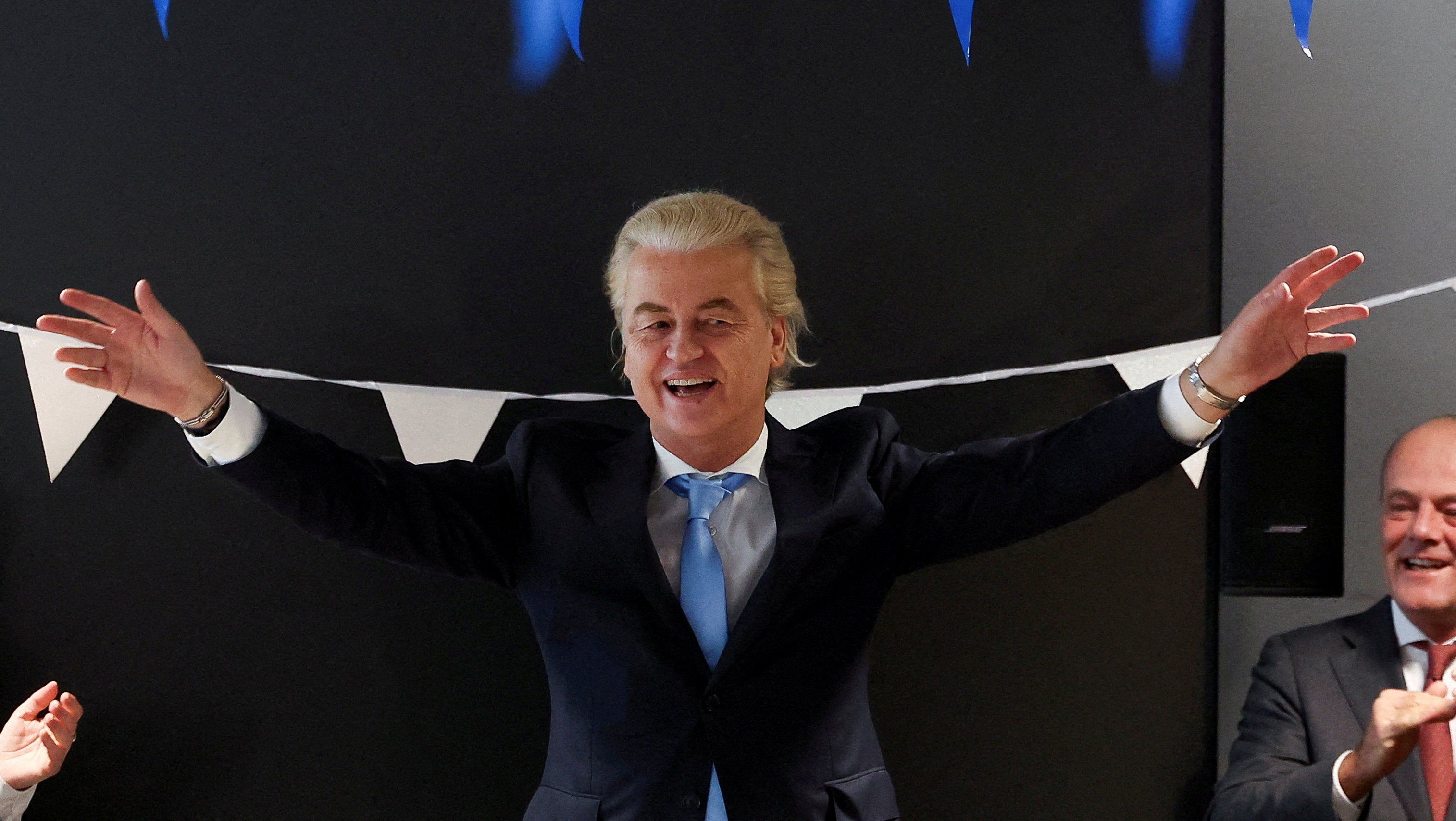Wilders has long promoted anti-Muslim policies, including a ban on Islamic schools, Qurans, mosques, and the wearing of hijab inside government buildings. Wilders has now tempered these pledges, saying he will “continue to moderate” his policies as coalition talks resume on Monday.
Wilders’ Freedom Party is expected to obtain 37 seats in the 150-seat Parliament, which falls short of the 76 needed under the Netherlands’ proportional representation system to secure a majority of seats. He must cement alliances with enough other parties to do so, and his dance card includes the center-right New Social Contract Party, with 20 seats, as well as the right-leaning People’s Party for Freedom and Democracy, aka VVV, which formed the previous government, now with 24 seats.
Outgoing VVV Prime Minister Mark Rutte says he will not join Wilders’ coalition but could back a “centre-right” government. NSC leader Pieter Omtzigt said he could not enter a coalition with Wilders unless he recanted the Quran and mosque ban. And Wilders wants to cut EU funding and promised a referendum on membership, while Omtzigt opposes a “Nexit.”
Meanwhile, Hungary’s Prime Minister Viktor Orbán toasted Wilder’s win, saying “The winds of change are here!” Far-right Flemish independence leader Tom Van Grieken, who is leading in the polls for Belgium’s June 2024 elections, also congratulated Wilders, saying “Parties like ours are on their way in the whole of Europe.”
But perhaps the most significant beneficiary could be Marine Le Pen, leader of France’s far-right Rassemblement National, who also cheered Wilders’ victory. Rassemblement National is leading opinion polls in France for next June’s elections to the European Parliament, with 28% of the vote compared to 19% for French President Emmanuel Macron’s party and its allies. A shift to the right could reverse the EU’s stand on policies related to climate action, EU reform, and weapons for Ukraine, while also impacting migration policies.



















